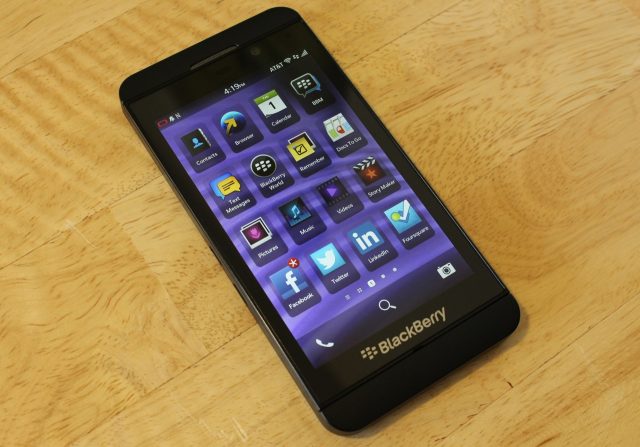
A few days ago, BlackBerry CEO John Chen strongly implied that Android was the future of the company’s phones—he didn’t say BlackBerry 10 was finished, but future phones from the company are much more likely to resemble the not-entirely-awful BlackBerry Priv. Last week, Microsoft announced that Lumia sales had taken a big year-over-year tumble, and for the last year the company has been busy getting its software onto competing platforms while Windows Phone loyalists wait for a software update that seems like it will never come.
These two platforms were the best hope for a solid third-place mobile operating system, a fallback option for people unsatisfied by Android and iOS. But at this point it’s clear that the race for third place is over, not because somebody won, but because everybody lost.
BlackBerry 10 was perhaps doomed from the start. The first version came out just three years ago, well after Apple and Google and even Microsoft had all established their modern smartphone platforms. It’s clear that BlackBerry 10’s failure was a decision that the market made, and BlackBerry’s decision to pivot to Google-powered Android and focus more on its services is good evidence.
The decline and fall of Windows Phone is more tragic, because for several years the OS was making headway. It had an app problem, sure, but Windows Phone 8 and 8.1 brought the OS itself up to the level of iOS and Android, and the low-end Lumias provided an excellent value for the money. But soon after buying the Lumia division from Nokia, Microsoft seemed to stop pushing. Windows Phone 8.1 has been left to rot while Microsoft takes its sweet time finishing a continually delayed Windows 10 update. To be an existing Windows Phone 8.1 user is to sit by and watch while Microsoft ports every selling point of Windows Phone as a platform to iOS and Android. Embracing iOS and Android unquestionably gives Microsoft’s apps and services a wider audience, but there’s no reason why it had to be done at the expense of the company’s existing user base.
The remains of these platforms aren’t really viable as general-purpose smartphone ecosystems. Diehards can (and will) disagree, and Microsoft at least has given Windows Phone acolytes a gift in the form of the Lumia 950 and 950XL. But if you’re recommending a smartphone to someone in 2016, Android and iOS can do pretty much anything that anyone needs to be able to do. Windows Phone and BlackBerry 10 cannot, and they’re best left to people who care more about brand loyalty than functionality.
Neither Apple nor Google controls the mobile market so completely as Microsoft controlled the PC market 15 years ago, so it’s not like competition doesn’t exist. But it still feels like there’s a hole in the market that no one is addressing—something between the tightly controlled sterility of iOS and Android’s fractured mess.
In a lot of ways, Windows Phone (now Windows Mobile again, since Microsoft can’t make up its mind) could fill that gap. It’s available to multiple OEMs to use in their own hardware, but it can be updated by Microsoft directly instead of relying on companies that have little to no incentive to support handsets after selling them to you. It has a recognizable visual style—one that was arguably ahead of its time—and it’s consistent from phone to phone. It runs well on low-end hardware, and it handles niche-but-important things like external storage devices well. Live Tiles, when implemented well, ably split the difference between iOS-style app icons and Android widgets. Microsoft is one of the few companies with enough money to push a money-losing platform for enough time to establish it (and Windows Mobile is at least undergoing visible, active development, unlike many of its peers). But it doesn't look like any of that was enough to make a difference in the end.
For Windows, there’s still some small hope that the rising tide of Windows 10 on the desktop will lift the mobile version’s boat. Developers who create universal Windows Store apps for the desktop will be able to adapt them to a phone’s screen with little to no effort. But success for Windows 10 doesn’t necessarily translate into more Windows Store apps, and the Store is still getting bad press even though the response to Windows 10 has been mostly positive overall.
With Windows Mobile fading, there’s essentially no hope that any third-party operating system will ever gain the critical mass of users it would need to compete with iOS or Android. The writing is on the wall for BlackBerry 10. The Fire Phone was a colossal flop. Firefox OS phones are dead. Sailfish OS, Ubuntu, and Tizen aren’t going anywhere. Forked, non-Google versions of Android control a significant chunk of worldwide market share, but that ecosystem is even more fractured than Google-supported Android.
All of those platforms have good ideas, good ideas that may or may not show up in iOS and Android as they continue to evolve. But the lack of a strong third pillar in the mobile world—even something as strong as Linux, an OS that can’t really exist in the closed-off locked-down smartphone world like it does in the comparatively standardized and open world of PCs and Macs—is bad for everyone.
reader comments
435